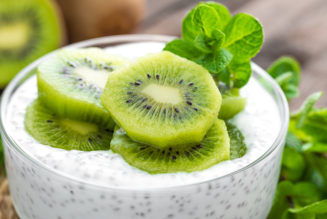Regardless of your race, ethnicity or gender, eating healthy appears to be a smart way to improve your odds of living a longer life, according to researchers who analyzed decades of data collected on more than 119,000 adults.
The study, appearing in JAMA Internal Medicine, found that greater adherence to a healthy eating pattern — such as a Mediterranean or a healthy plant-based diet — was associated with about a 20 percent lower risk of early death. Notably, the researchers found the associations held true across racial, ethnic and other lines.

AARP Membership — $12 for your first year when you sign up for Automatic Renewal
Get instant access to members-only products and hundreds of discounts, a free second membership, and a subscription to AARP the Magazine.
“Our findings support the recommendations of DGAs [Dietary Guidelines for Americans] for multiple healthy eating patterns for all US individuals with diverse cultural and personal food traditions and preferences,” concluded corresponding author Frank B. Hu, M.D., of the Harvard T.H. Chan School of Public Health in Boston, and his fellow researchers.
In a nutshell, that means regardless of age, race, ethnicity or current health status, you don’t have to give up your favorite foods or cultural traditions or break the bank to eat healthy.
The Dietary Guidelines for Americans
In its most recent DGA, the U.S. Department of Agriculture (USDA) recommends adhering to a modest diet of “nutrient-dense” foods and drinks. That means you should also watch your calories and not eat too much of one thing.
As the DGA explains, nutrient-dense foods “provide vitamins, minerals, and other health-promoting components and have no or little added sugars, saturated fat, and sodium.” According to the USDA, such foods include:
- Vegetables of all types, including leafy dark greens, starchy ones such as sweet potatoes, and beans, peas and lentils (which are also high in protein)
- Fruit, especially whole fruit
- Grains, at least half of which are whole grains
- Dairy, including fat-free or low-fat milk, yogurt and cheese. Alternatively, lactose-free versions and fortified soy beverages and yogurt are recommended.
- Proteins, including lean meats, poultry and eggs; seafood; beans, peas and lentils; and nuts, seeds and soy products
- Oils, including vegetable oils and oils in foods such as seafood and nuts









